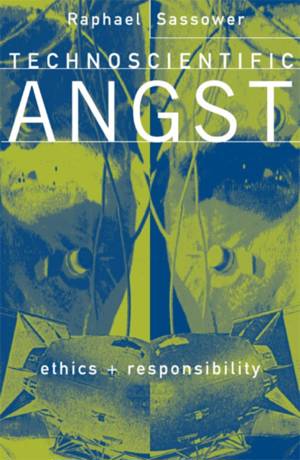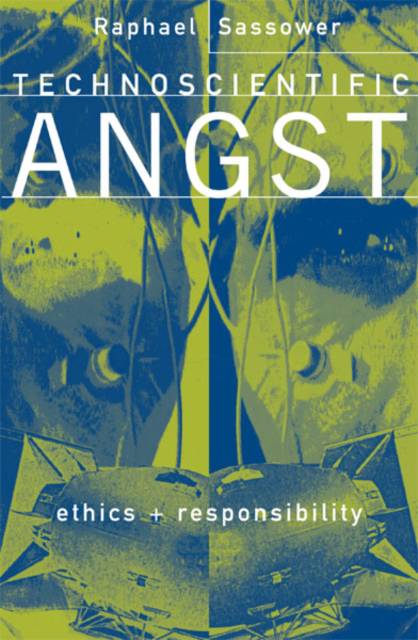
- Afhalen na 1 uur in een winkel met voorraad
- Gratis thuislevering in België vanaf € 30
- Ruim aanbod met 7 miljoen producten
- Afhalen na 1 uur in een winkel met voorraad
- Gratis thuislevering in België vanaf € 30
- Ruim aanbod met 7 miljoen producten
Zoeken
€ 30,95
+ 61 punten
Omschrijving
Reassesses the social and ethical situations of technoscientists.
Reassesses the social and ethical situations of technoscientists.
What responsibility do the Manhattan Project scientists have for the atomic devastation of Hiroshima? The Krupps scientists for the crematoriums at Auschwitz? Disturbing questions like these are at the heart of this book, a sobering exploration of scientific and intellectual responsibility.Raphael Sassower considers two related phenomena: the positive public image of science as the citadel of truth and objectivity and the angst displayed by scientists over their indirect roles in technological horrors. Largely unexamined, these circumstances provide the opportunity for a wholesale reassessment of the social and ethical situations of science and technology. In a world in which daily technological developments, from the space shuttle to genetic engineering, raise complex political and economic questions, this book provides a framework for assessing the social impact and ethical implications of scientific work. Is there no way, Sassower asks, to revisit the ideals of science-once devoted to creating a more reasonable and open society free from prejudices-when deciding the value of technoscientific projects and policies? His work suggests ways we can both preserve the benefits of enlightenment rationality (so-called scientific objectivity) and overcome the notion of science as our culture's master narrative.Bringing the tools of postmodern philosophy and criticism to bear on Auschwitz and Hiroshima, the most brutal and incomprehensible instances of scientific modernism, Technoscientific Angst proposes that we change our scientific and philosophical perspectives on the modern world-that we bring them together in a novel and constructive way. 160 pages Translation rights: University of Minnesota PressSpecificaties
Betrokkenen
- Auteur(s):
- Uitgeverij:
Inhoud
- Aantal bladzijden:
- 160
- Taal:
- Engels
Eigenschappen
- Productcode (EAN):
- 9780816629572
- Verschijningsdatum:
- 5/11/1997
- Uitvoering:
- Paperback
- Formaat:
- Trade paperback (VS)
- Afmetingen:
- 152 mm x 227 mm
- Gewicht:
- 272 g

Alleen bij Standaard Boekhandel
+ 61 punten op je klantenkaart van Standaard Boekhandel
Beoordelingen
We publiceren alleen reviews die voldoen aan de voorwaarden voor reviews. Bekijk onze voorwaarden voor reviews.











